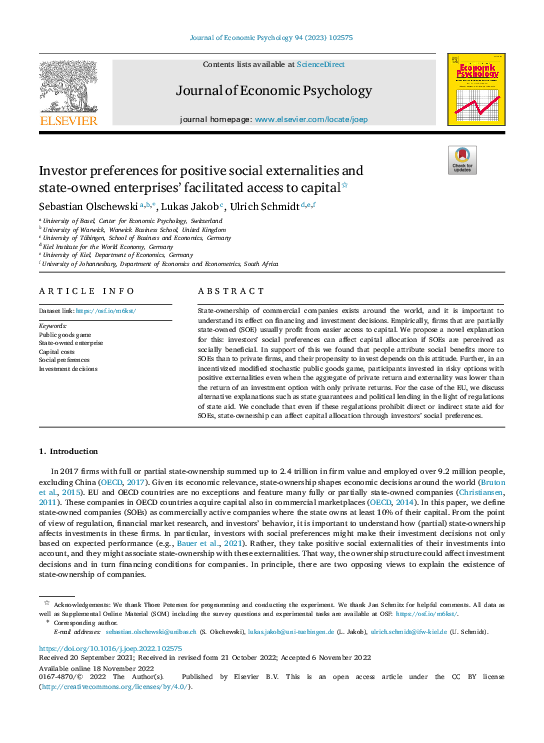Journal Article
Investor Preferences for Positive Social Externalities and State-owned Enterprises’ Facilitated Access to Capital
State-ownership of commercial companies exists around the world, and it is important to understand its effect on financing and investment decisions. Empirically, firms that are partially state-owned (SOE) usually profit from easier access to capital. We propose a novel explanation for this: investors’ social preferences can affect capital allocation if SOEs are perceived as socially beneficial. In support of this we found that people attribute social benefits more to SOEs than to private firms, and their propensity to invest depends on this attitude. Further, in an incentivized modified stochastic public goods game, participants invested in risky options with positive externalities even when the aggregate of private return and externality was lower than the return of an investment option with only private returns. For the case of the EU, we discuss alternative explanations such as state guarantees and political lending in the light of regulations of state aid. We conclude that even if these regulations prohibit direct or indirect state aid for SOEs, state-ownership can affect capital allocation through investors’ social preferences.







